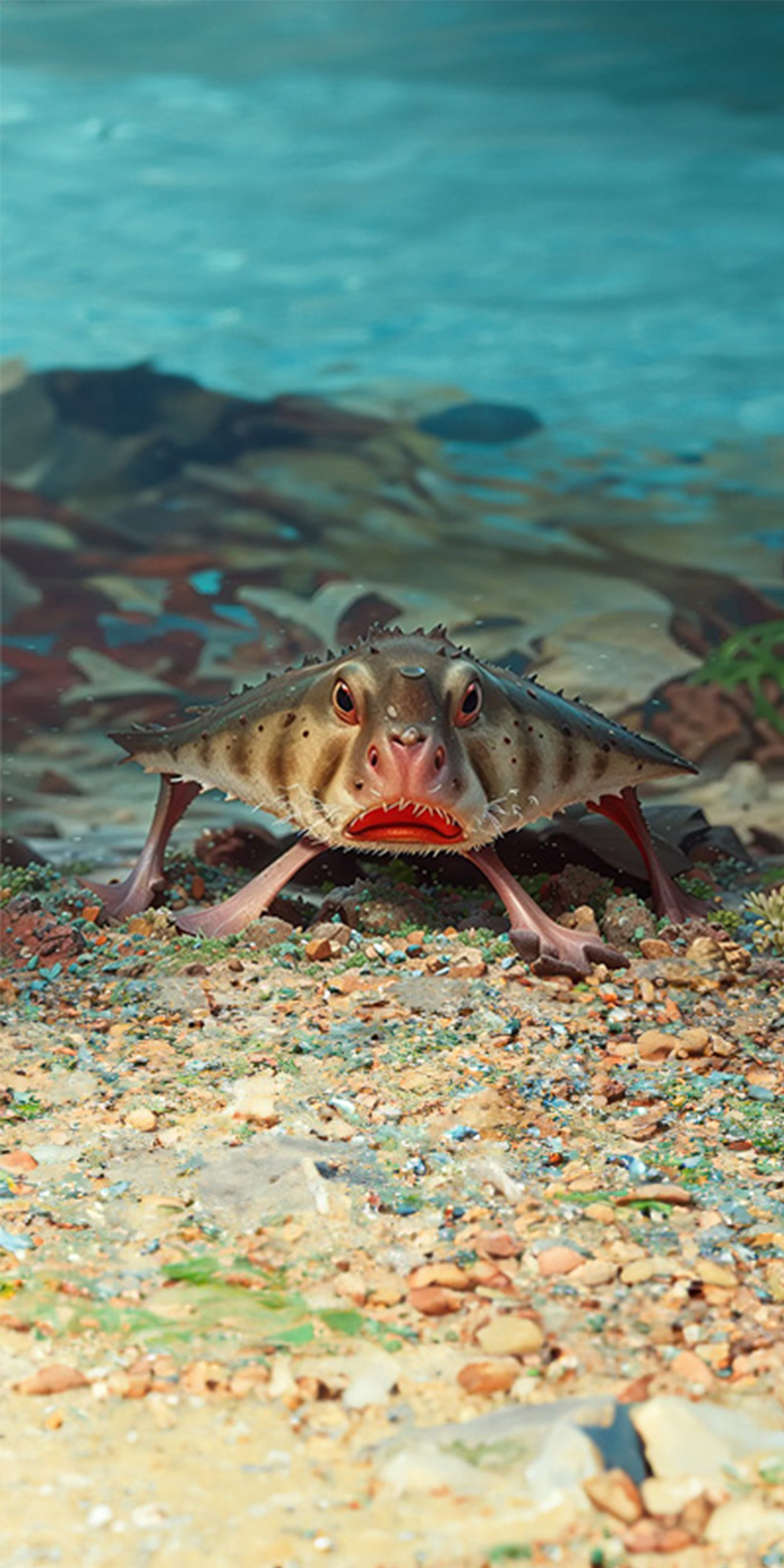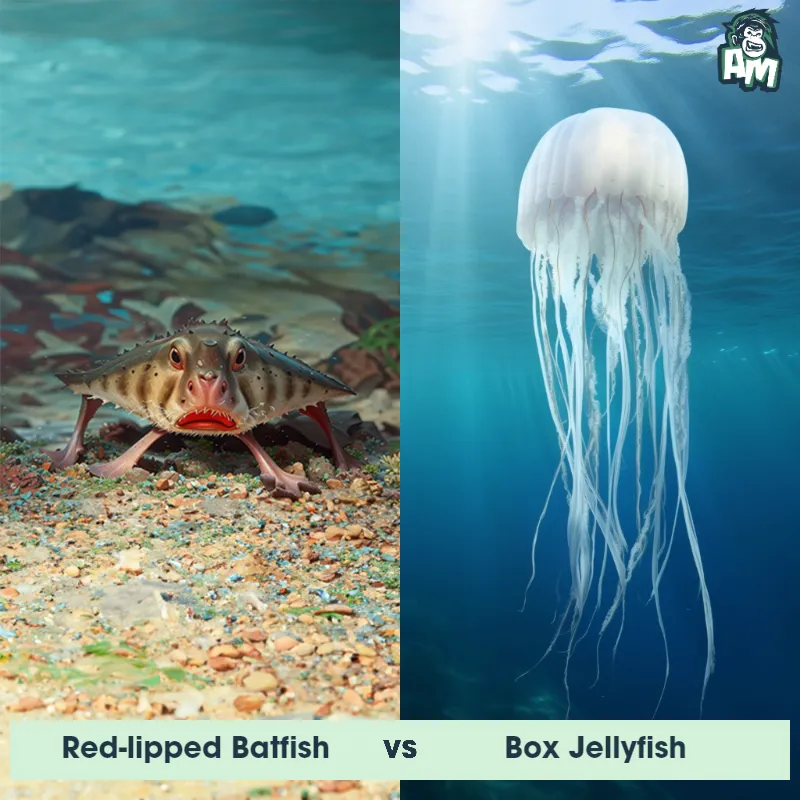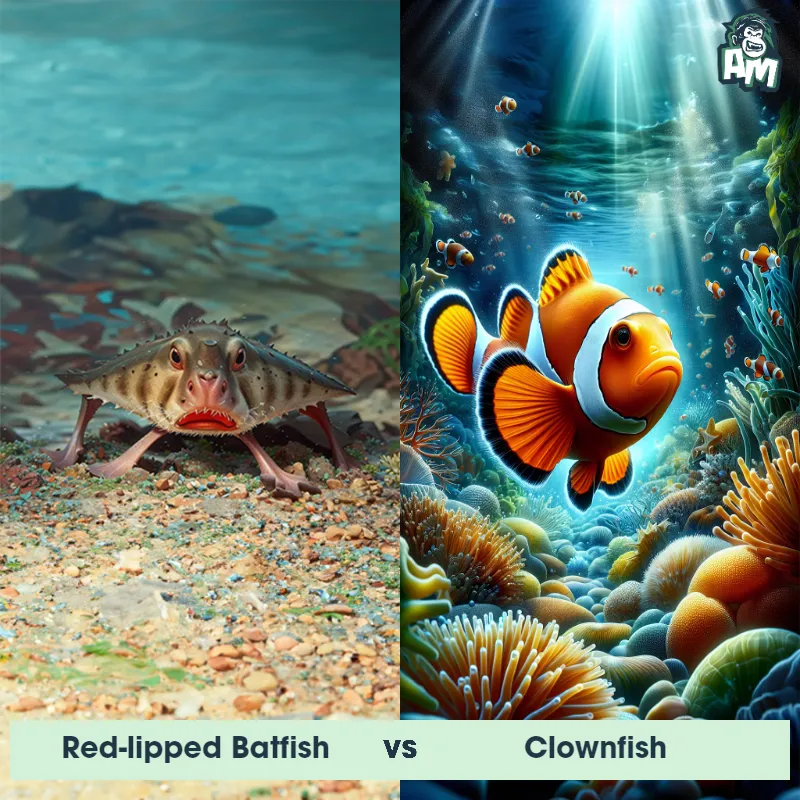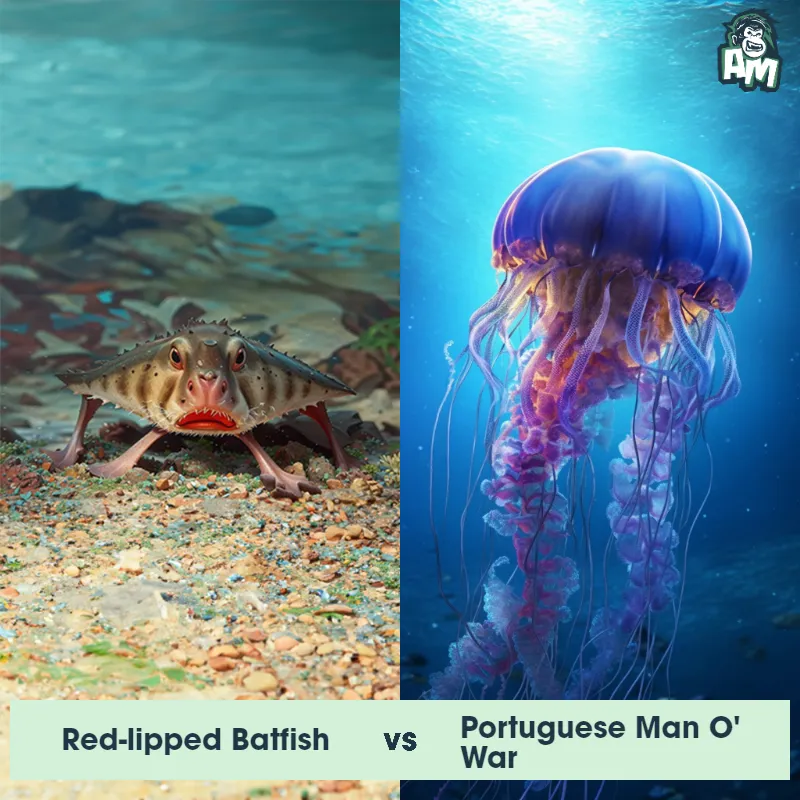The Red-Lipped Batfish
The Red-Lipped Batfish, scientifically known as Ogcocephalus darwini, is a unique and fascinating species found in the waters surrounding the Galápagos Islands and other areas in the Pacific Ocean. This peculiar fish possesses distinctive characteristics that set it apart from other fish species. Known for its luscious red lips, the Red-Lipped Batfish has a flattened body and an elongated, narrow snout. Its pectoral fins resemble feet, enabling it to "walk" along the ocean floor. Furthermore, its body is covered in rough scales, providing it with some protection. Typically, these fish grow to around 20 centimeters in length and have a predominantly gray-brown coloration, which helps them blend in with their sandy or rocky habitats.

| Red-Lipped Batfish | |
|---|---|
| Size | Up to 20 centimeters (8 inches) in length |
| Weight | Unknown |
| Speed | 0.93 mph (1.5 km/h) |
| Key Strength | Unknown |
| Biggest Weakness | Unknown |
| Scientific Name | Ogcocephalus darwini |
| Family | Ogcocephalidae |
| Habitat | Benthic habitats, such as sandy and rocky areas |
| Geography | Galapagos Islands, Pacific Ocean |
| Diet | Small fish, invertebrates, and crustaceans |
| Lifespan | 1 years - 2 years |

The Red-Lipped Batfish
The Red-Lipped Batfish, scientifically known as Ogcocephalus darwini, is a unique and fascinating species found in the waters surrounding the Galápagos Islands and other areas in the Pacific Ocean. This peculiar fish possesses distinctive characteristics that set it apart from other fish species. Known for its luscious red lips, the Red-Lipped Batfish has a flattened body and an elongated, narrow snout. Its pectoral fins resemble feet, enabling it to "walk" along the ocean floor. Furthermore, its body is covered in rough scales, providing it with some protection. Typically, these fish grow to around 20 centimeters in length and have a predominantly gray-brown coloration, which helps them blend in with their sandy or rocky habitats.
Fun Fact: Despite being called a "batfish," the Red-Lipped Batfish is not capable of flight or echolocation like bats; rather, it uses its modified pectoral fins to crawl or "walk" along the seafloor in search of prey.
| Red-Lipped Batfish | |
|---|---|
| Size | Up to 20 centimeters (8 inches) in length |
| Weight | Unknown |
| Speed | 0.93 mph (1.5 km/h) |
| Key Strength | Unknown |
| Biggest Weakness | Unknown |
| Scientific Name | Ogcocephalus darwini |
| Family | Ogcocephalidae |
| Habitat | Benthic habitats, such as sandy and rocky areas |
| Geography | Galapagos Islands, Pacific Ocean |
| Diet | Small fish, invertebrates, and crustaceans |
| Lifespan | 1 years - 2 years |
Red-Lipped Batfish Matchups
We use AI to simulate matchups between the Red-Lipped Batfish and other animals. Our simulation considers size, strength, and natural predatory behaviors to determine the most likely outcome.
Red-Lipped Batfish: Diet, Predators, Aggression, and Defensive Behaviors
What do Red-Lipped Batfish eat?
Red-Lipped Batfish are carnivorous and primarily feed on small fish, crustaceans, and other marine invertebrates. They are opportunistic feeders, lying in wait for their prey before ambushing them with a quick strike.
Do Red-Lipped Batfish have any predators?
As adults, Red-Lipped Batfish have few natural predators due to their poisonous flesh. However, when they are young, they are vulnerable to larger fish, birds, and other marine predators that can easily prey on them.
Are Red-Lipped Batfish aggressive?
Red-Lipped Batfish are not known to be aggressive towards other species or humans. They are slow-moving and prefer to rely on their camouflage rather than aggression for survival.
Do Red-Lipped Batfish fight?
Red-Lipped Batfish are not territorial and do not engage in fights with each other or other species. They tend to be solitary creatures, preferring to blend in with their surroundings rather than engage in confrontations.
How do Red-Lipped Batfish defend themselves?
Red-Lipped Batfish have developed a unique defense mechanism to protect themselves from predators. Their flesh contains a highly poisonous substance that makes them unpalatable to most predators, effectively deterring them from becoming prey.
What is the Red-Lipped Batfish's biggest weakness in a fight?
Despite their poisonous flesh, the Red-Lipped Batfish's slow movement and lack of agility make them vulnerable to faster and more agile predators. If faced with a fast and nimble predator, their best defense is often their ability to blend in with their surroundings rather than engage in a physical fight.
Fun Fact: These unique creatures have a fascinating reproductive system – the males have a specialized appendage known as a "reproductive lure" that resembles a small worm-like structure. By wiggling this lure, the male attracts females, enticing them to approach and mate.
Fun Fact: Red-Lipped Batfish possess an interesting adaptation to their deep-sea habitat. Due to the scarcity of light in their environment, their eyes are positioned on the top of their head. This unusual placement helps them scan the surroundings above them for potential prey or predators, making the most of the limited light that filters down from the surface.














